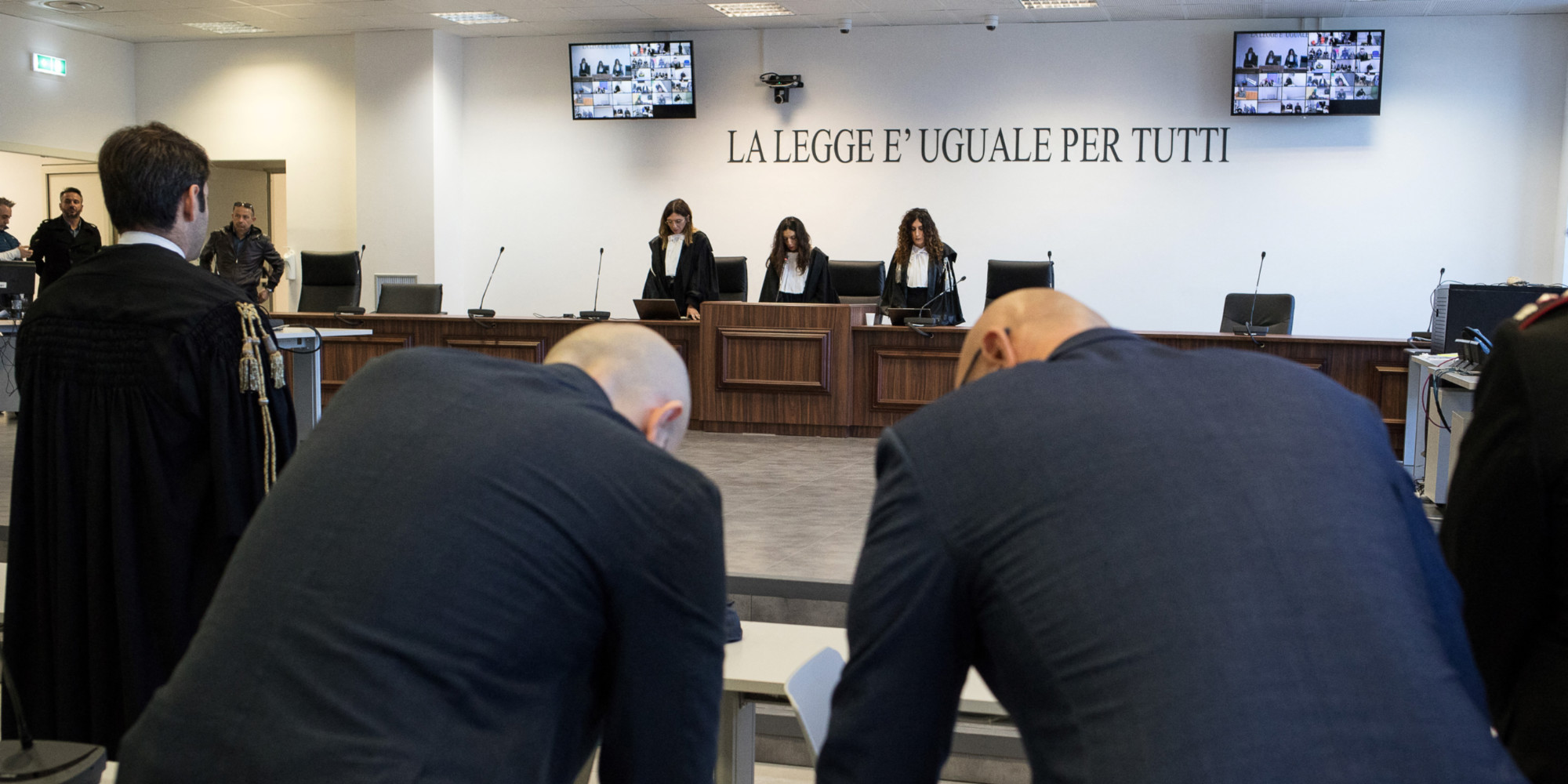More than 200 people were sentenced Monday in Italy to sentences of up to 30 years in prison following a “maxi-trial” against the ‘Ndrangheta, the most powerful mafia on the peninsula. Of the 338 defendants who appeared in first instance before the court in Lamezia Terme (south), 207 were found guilty and sentenced, while 131 were acquitted. The prosecution had requested a total of nearly 5,000 years in prison against the mafiosi as well as their white-collar accomplices, civil servants, local elected officials and even high-ranking police officers.
The sentences, read by judge Brigida Cavasino, range from a few months in prison to 30 years in prison, a sentence received by four people. One of the most prominent defendants, former senator Giancarlo Pittelli, 70, was sentenced to 11 years in prison while the prosecution had requested a sentence of 17 years. Based in Calabria, a very poor region located in the tip of the Italian Boot, the ‘Ndrangheta is the richest and most powerful of the Italian mafias.
The most important trial against the mafia in 30 years
Present in around forty countries, it exerts a stifling hold on its homeland, infiltrating and corrupting the administration while imposing its iron law on the population. Since January 2021, three judges have heard thousands of hours of witnesses, including around fifty repentant mafiosi who have become collaborators of justice, on the activities of the Mancuso family and its associates, an important clan of the ‘Ndrangheta controlling the province of Vibo Valentia.
This maxi-trial organized in a bunker under high surveillance in the town of Lamezia Terme is the most important against the mafia in more than 30 years. The charges are numerous: mafia association, drug trafficking, extortion, usury, laundering of dirty money… During the trial, the accused detailed the violent operation of the ‘Ndrangheta, its influence over the local population , extortion, rigging of tenders and elections, acquisition of weapons, etc.
“Deafening silence”
They revealed secrets about weapons caches in cemeteries or ambulances used to transport drugs, and revealed how municipal water was diverted to water marijuana plantations. Monday morning, at the opening of the hearing, an entrepreneur victim of the mafia came, like every week since the start of the trial, to express his support “to those who help us free ourselves, the judges and the prosecutors” . Questioned by an AFP journalist, Rocco Mangiardi, 67, however said he regretted “the deafening silence” of the Italian media on this affair, and the absence of ordinary citizens like him on the public benches.
Those who oppose the mafia are threatened, even eliminated. They discover dead puppies or the heads of goats or even dolphins on their doorstep. Not to mention the cars set on fire or the storefronts vandalized. Some are also beaten up or shot at, others disappear forever. Illustrating the infiltration of the ‘Ndrangheta into the legal economy, company managers, mayors and civil servants, including a high-ranking police officer, appear in the dock.
Multinational crime
Long underestimated, the ‘Ndrangheta grew quietly for decades while authorities focused their efforts on Cosa Nostra, the Sicilian mafia depicted in films like The Godfather. The first maxi trial was also organized against its members in Palermo in 1986, resulting in the conviction of 338 mafiosi. Today, experts estimate that the ‘Ndrangheta, made up of around 150 Calabrian families, achieves an annual turnover of around fifty billion euros throughout the world.
With the help of Interpol, Italy has managed in recent years to tighten its grip on the criminal network, leading police around the world to identify and tackle ‘Ndrangheta activities on their territory. But despite its scope, this trial should not disrupt the activities of the ‘Ndrangheta, according to experts. “I don’t believe that a police operation is enough to destroy the ‘Ndrangheta,” says Antonio Nicaso, who highlights other priorities: employment, education and changing mentalities. “This is what we need to attack a criminal organization.”
